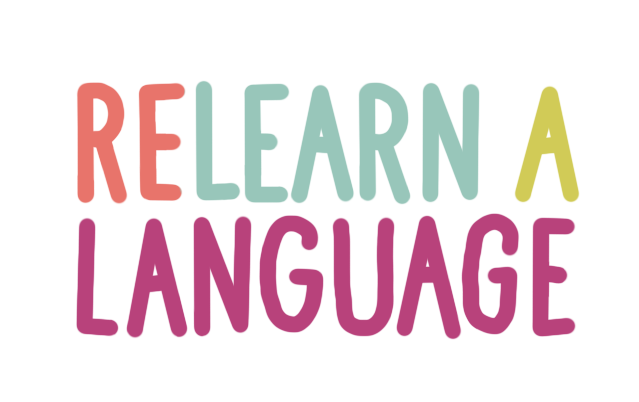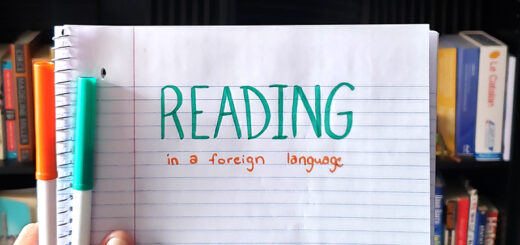20+ Language Club Activities (That University Students Will LOVE) 2021
by Marissa Blaszko · January 23, 2021

Most language club activities lists are aimed for middle-school or high-school teachers looking to lead students in classroom activities.
But these language club activities are for university students (or high school students) who want to actually use their language to make friends, have fun, or make a difference in their communities.
You’ll find details for every activity to help you justify them in your annual club budget, plan your semester, and keep people from dropping out of your club.
(I know because, not only am I a polyglot, but I was the head of 3 different clubs when I was in college. So trust me on this–these will be fun.)
How to Read This List of Language Club Activities
With growing research on the importance of clubs in academic life [source] but also the growing number of hours students have to spend working to do well in university [source] I wanted to create a list of language club activities that was easy to read and execute.
Here’s a fast guide to how all of these language club activities are labeled:
Age Guide
- 🏛 University-only: it will require transportation, a larger budget, or a large campus
- 🏛🏫 University or high school: it’s great for a range of language skill levels and requires little logistical help
Budget
- 💳 Line-item needed: your language club will want funding for this
- 📦 Investment: a small, one-time purchase will buy you something you can use all year
- ⭐ No budget needed: can be done with almost no supplies or investments
Time Commitment
- 🗓️ Ongoing activity: This activity will take several weeks or months
- 📅 Advanced planning: group leader will have to do work before the activity
- ⏰ Quicky: less than 15min of pre-meeting planning
Additional Notes
- 👩🏫 Expert language user needed: a teacher or professor will have to help
- ♿ Thoughtfulness needed: may require extra planning to include students with physical disabilities
- 💻 Digital-friendly: can be done online
- 📱 Tech needed: requires students to all have laptops or smartphones
- 😷 Complies with social distancing
And now that that’s out of the way, let’s get into these language club activities!
Ideas for Language Club Activities
1. Language immersion through gaming
- Age: 🏛 May depend on high school technology policy
- Budget: ⭐ None for club, but see additional notes
- Time Commitment: ⏰ Little planning
- Additional Notes: 😷♿📱 Students must have own phones or gaming systems; may not be inclusive for visually-impaired students
Dig into Among Us, Minecraft, or any other multi-player computer game!
The only rule is that all typing or speaking has to be in the target language of your club.

2. City-wide scavenger hunt
- Age: 🏛 Students must be adults
- Budget: ⭐ Little to no budget
- Time Commitment: 📅 A week of planning for an entire afternoon of fun
- Additional Notes: 👩🏫♿ Will need a coordinator who speaks the language fluently, and need to be mindful of any students with mobility disabilities.
Our second language club activity is one of our most “real life” immersion.
Can students complete the scavenger hunt while only speaking their target language?
Version 1: Teams head out into the city to follow clues (written in the target language) to find the finish line. Incorporate small-business owners who speak the target language by asking them to hang onto clues and leave snacks for students along the way!
Version 2: Teams have a list of different traits people might have: fan of a certain sports team, can sing a certain song, have a certain job, etc. Students must speak to strangers in order to find enough people to complete the hunt, taking selfies as proof along the way. (Can only be done in areas where the target language is heavily spoken.)
3. Build a Google Maps scavenger hunt
- Age: 🏛🏫
- Budget: ⭐ Only personal devices are needed
- Time Commitment: 📅 Does require some planning
- Additional Notes:😷💻📱Digital experience!
Can’t go abroad? Give students each a unique starting place and have them log onto Google Maps streetview. Using directions, clues, and landmarks (all in the target language), let them walk around the city until they find the finish line.
(The below tutorial has some ideas, but you can get super creative here)!
4. Kahoot!
- Age: 🏛🏫
- Budget: ⭐
- Time Commitment: 📅 Some pre-planning
- Additional Notes:😷📱 Students all need smart phones
How well do you know the target culture?
Quiz students on history, food, pop music, or anything else…. in the target language.
(Are the students in your club at mixed levels? Have a volunteer run a second group in the dominant language so they can still learn about culture, but through an easier language.)

5. Movie Night
- Age: 🏛🏫
- Budget: ⭐ Free or cheap
- Time Commitment: ⏰ Little planning and set up
- Additional Notes:😷♿💻📱 If you have a chat open, students will need their own computers or phones. If you have a visually impaired student, ask them how to best search for films with spoken descriptions for them to enjoy.
Grab a movie in the target language and turn on a chat-room! (Bonus points if it’s a hilariously bad movie that students will want to joke about.)
Need to do it socially-distanced? Check out a number of chrome extensions so you can watch Netflix, Prime, or YouTube together.

6. Creative Coffee Convos
- Age: 🏛🏫 All ages, although not all levels
- Budget: ⭐ Free!
- Time Commitment: ⏰ Give students the menu link at the exchange
- Additional Notes:😷 Students should be break-through conversational. Can be done in Zoom break-out rooms.
Language exchanges are an awesome weekly or monthly activity to get students to take their language skills to a new level.
But if you want to really make them interesting, use a menu of language exchange topics.
(Thank us later!)
7. Pictionary Telephone
- Age: 🏛🏫 Perfect for all ages
- Budget: ⭐ Only requires paper and pens
- Time Commitment: ⏰ No set-up
- Additional Notes: ♿ May not be possible for visually-impaired students.
The below tutorial explains the game well, but the idea is that students will alternate reading/drawing and guessing/writing.
When done in the target language, this is a great vocabulary challenge and can get super creative.
The game organizer can decide whether or not students can use dictionaries if they get lost, but the should at least start without looking up any words (to make sure the game is accessible to everyone in the class.)
Pro-tip #1: Encourage students to write a full sentence to start the game.
Pro-tip #2: Use legal sheets of paper and cut them into 2 pieces the long way, so you have two very long (and semi-skinny) pieces. Trust me.
8. One-word short story builder
- Age: 🏛🏫 All ages
- Budget: ⭐ Just a pen and paper!
- Time Commitment: ⏰ No planning or prep
- Additional Notes:n ♿ Visually impaired students may need accommodations
Similar to Pictionary Telephone, start each student with their own piece of lined paper.
Sit students in a circle. Each student will write one word on their paper, then pass all of the papers to the left.
Then, when the students have all switched papers, they will continue by adding on another word.
The story will continue, one word at a time, as students pass their papers in circles or circles.
(You can also start each story with a full sentence and have each additional student contribute one new sentence.)
9. Support local businesses
- Age: 🏛
- Budget: 💳 Broke college students would likely appreciate a snack budget!
- Time Commitment: 📅 Optional calling-ahead
- Additional Notes: ♿ Call ahead to confirm wheel-chair accessibility if needed
Many of the above (and below) activities are portable.
Host your club meetings in a different small cafe, restaurant, or diner every week which serves food from your target culture(s). Call ahead and see if the owner or manager can arrange for menus and waitstaff in the target language.
10. Karaoke (and a group Spotify playlist)
- Age: 🏛🏫
- Budget: 📦 Rental or purchase of karaoke equipment
- Time Commitment: 📅 Some small set-up
Get the group going at the beginning of the semester by building a few Spotify playlists as a team.
See if you can borrow or rent a mic and speakers set-up from campus, and use YouTube to find karaoke versions of your favorite songs!
You can even set rules to make the whole experience an immersive language-exchange by forbidding English. That way, students who don’t want to sing can still come and socialize.

11. Heritage recipe pot-luck
- Age: 🏛🏫
- Budget: ⭐ Students’ responsibilities
- Time Commitment:🗓️📅 See description
- Additional Notes: ♿ Make sure you get a list of allergies or dietary restrictions from the group
Are some of the students in your club heritage language speakers? Empower them to teach others about their culture through food!
Host cooking classes, have them bring in grandma’s favorite dish, or have them reconnect with something new.
This can be done student-by-student throughout the year, or in a one-off party.
12. Polyglot guest speakers
- Age: 🏛🏫
- Budget: 💳 Consider giving the speaker a small honorarium
- Time Commitment: 📅 Pre-planning needed
- Additional Notes:😷💻 Can be done in-person or digitally
Do the students in your club really love languages?
How a talk about language learning (with time for Q&A) in the target language by inviting a polyglot to chat! Most will be happy to, and it can either be a digital activity or projected on a group screen.
13. Volunteer projects
- Age: 🏛🏫 Permission slip may be needed
- Budget: ⭐
- Time Commitment:🗓️📅 See description
- Additional Notes: ♿ Make sure location is wheel-chair accessible if needed
Do speakers of your target language live in your community? Ask around to organizations like soup kitchens, Habitat for Humanity, or nursing homes if they’re in need of volunteers.
Can be done on a weekend day or as an on-going activity.
14. Fundraise, construct, and ship welcome kits for refugees
- Age: 🏛🏫 All ages
- Budget: ⭐ Fundraiser
- Time Commitment:🗓️ Long-term project
Does your city have centers or organizations that help refugees? See what is needed for donation, then work as a team (in your target language) to plan, fundraise, construct, and send over everything they need–from sanitary needs to food and clothing.
And if they speak the same language you’re learning, send over hand-written notes welcoming them to their new home.

15. Create your own Language Club Podcast
- Age: 🏛
- Budget: 💳⭐ Depends on rental options
- Time Commitment:🗓️ Long-term project
- Additional Notes: 😷 Students may be able to record at-home or in dorms.
Now we’re getting interesting.
Work with your campus radio station to use their equipment (or buy your own) and create a group podcast based on anything you want–in the target language.
Some ideas include:
- Interviews with language and linguistics faculty
- Interviews with polyglots or professional language learners
- Interviews with professionals in your target fields
- Informal chats between students about campus life
- A translation (and recording) of the student newspaper
16. Publish a graded reader
- Age: 🏛🏫
- Budget: 💳⭐ Can be printed professionally or electronically
- Time Commitment:🗓️ Long-term project
- Additional Notes:😷👩🏫💻 Will need faculty or tutors to proof-read, but can be done 100% remotely.
Graded readers are books of short-stories written at very low comprehension levels for adults who are learning the language.
They shouldn’t be confused with fairy tales or kids books. (Click here for some examples.)
Have everyone from your club contribute 1 rough draft at the beginning of the semester of a story that is 3-15 pages. Work throughout the semester to have them proofread and laid out.
Then, publish!
This will not only be an amazing resume-builder but perfect for students who are going into teaching and will want to start their first year with interesting materials.
17. Go to a heritage art museum
- Age: 🏛
- Budget: 💳 Depends on museum ticket fees
- Time Commitment: 📅 Minimal planning
- Additional Notes: ♿ Check for accessibility options
Does your city have a museum with shows or exabitions that highlight the target language culture(s)? Arrange a tour in your target language with the museum!
18. Make street art
- Age: 🏛
- Budget: 💳⭐ Depends on the scope of the project
- Time Commitment:🗓️ Long-term
- Additional Notes: ♿ Students who use wheelchairs or walkers may need accommodations.
Team up with the campus art club to make stickers, paint a mural, or construct a temporary installation. All you need is a plan and a permit.
But how is this related to languages?
For stickers, check out the below tutorial. Even lower-level students can create colorful, hand-made stickers that can teach people politeness phrases, introductions, or bits of fun vocabulary. Leave them at bus stops, crosswalks, or around campus and celebrate your city’s bilingualism.
For murals or installations, team up with a local neighborhood organization and see if your clubs can come buy and work with them (if there are populations who speak your TL nearby) to create something great.
19. Start a Wikipedia translation campaign
- Age: 🏛 High level of language needed
- Budget: ⭐ Free
- Time Commitment: 🗓️ On-going project, but little planning needed
- Additional Notes:😷👩🏫💻📱 Can easily be done remotely, but each student will need a computer and teacher help
Help the world learn! Translate culturally-relevant Wikipedia pages out of the target language and into your native language, or vice versa.
However, if you’re translating into the target language, make sure you work with a tutor or proofreader.
20. Hold a cross-club trivia night
- Age: 🏛 Better for advanced-learners and between multiple clubs
- Budget: ⭐ Free unless you want to provide food
- Time Commitment: 📅 Some pre-planning needed
Exhausted by speaking in your target language? Work with history or cultural clubs for a trivia night!
Each club organizer should provide up to 20 questions which their clubs haven’t seen yet, pertaining to the history or culture of the TL’s culture(s). Split the two clubs up into various teams (either against each other or mixing the clubs) and see who knows the most!
5 Board Games for Language Clubs
Finally, what about some absolutely fun games that don’t need any advanced-planning?
Here are our reviews for each one, and how they can be customized for language club activities:

Story Cubes are rolling-dice which each feature an image. Students are challenged to tell a quick short story based on the image(s) they roll. Best for advanced learners.
Scrabble and Boggle are great word-search games that come in a variety of language editions. (Just be warned that if you buy the English version to try to make it work for your target language, the percentage of various letters will be frustrating.)
Taboo is a super fun game where students have to help teammates guess a keyword, but can’t use a variety of other words. It’s available in multiple languages, but club organizers can also design their own cards. (Just make sure you pre-screen the cards for language level appropriateness.)
Apples-to-Apples is also available in a number of languages, but club organizers can also make their own using index cards (and a lot of patience).
Want more resources and activities for language clubs?
This website publishes and updates awesome lists of immersion content, learning help, and activity ideas.
Click here to sign up to our monthly email club for a once-a-month email of the most interesting stuff we have on tap.
Or, hit the navigation bar to find tons of fun stuff in all of the languages I (the author) study.






